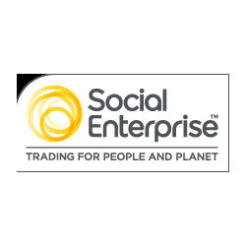The new national Social Enterprise Mark has had a mixed start, with strong support from one of the first social enterprises in the UK, The Big Issue, but criticism and rejection by the Scottish network of social entrepreneurs, Senscot.
The Mark, which launched last week at the Voice10 conference, is described as a ‘visual identifier’ for social enterprises. It is effectively the national rollout of an identifier launched by south west social enterprise network Rise in 2007 in partnership with the Social Enterprise Coalition and the Office of the Third Sector.
Big Issue founder John Bird has committed to putting the new Social Enterprise Mark on every cover of The Big Issue magazine sold in the UK.
He made the promise to Peter Holbrook, CEO of the Social Enterprise Coalition and Lucy Findlay, CEO of Rise last week.
Holbrook told Civil Society that Bird “didn’t take much convincing”. The Big Issue has confirmed it has applied for the Mark.
However, SEC’s Scottish counterpart Senscot has decided to decline the opportunity to become a regional partner of the Mark.
In an email bulletin to its members, the Scottish network said: “During last year, Senscot was in discussions with our counterparts in England about the establishment of a Social Enterprise Mark (SEM) – and its implications for Scotland.
“We argued our corner, but towards the end of the process, more persuasive forces (probably Whitehall) have determined that the eligibility criteria for SEM should be softened – to enable it to become a high volume/quick impact instrument.
“Our soundings with Scottish colleagues confirm our own view – that this strategy is short-sighted and not the route we would choose in Scotland. The upshot is that, as things stand, we no longer feel able to wholeheartedly support the SEM – and intend to decline the opportunity to be the Scottish partner.”
The eligibility criteria for the Mark is as follows:
- Do you have evidence of your company's social and environmental aims?
- Does the company have its own constitution and governing body?
- Are at least 50 per cent of the company profits spent on socially beneficial purposes?
- Does the company earn at least 50 per cent of its income from trading?
- Can you provide externally verified evidence that you are achieving your social or environmental aims?









